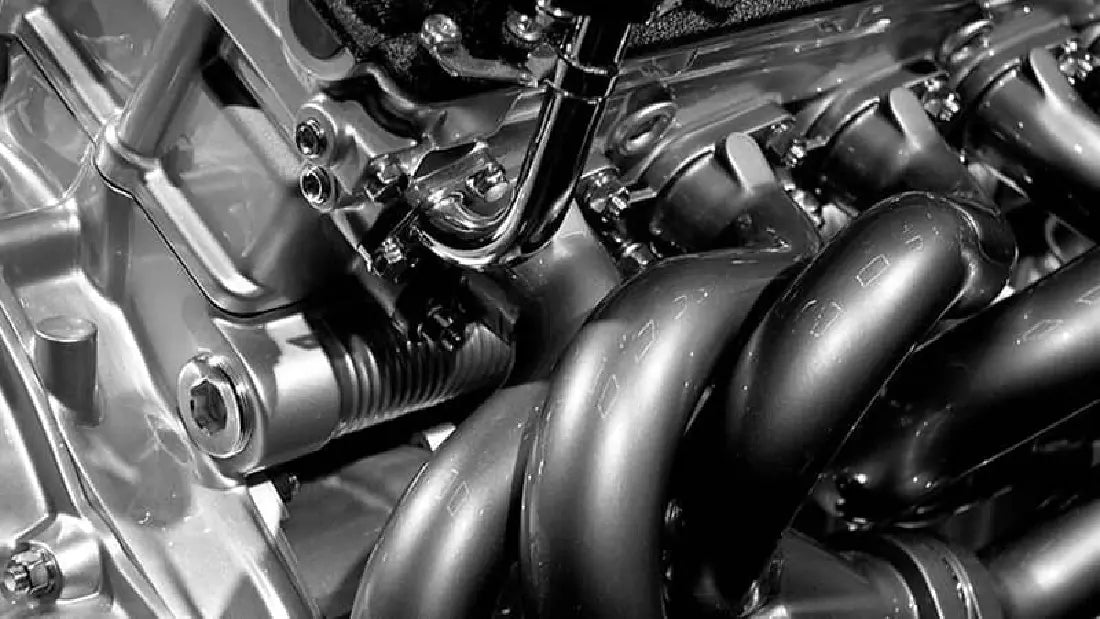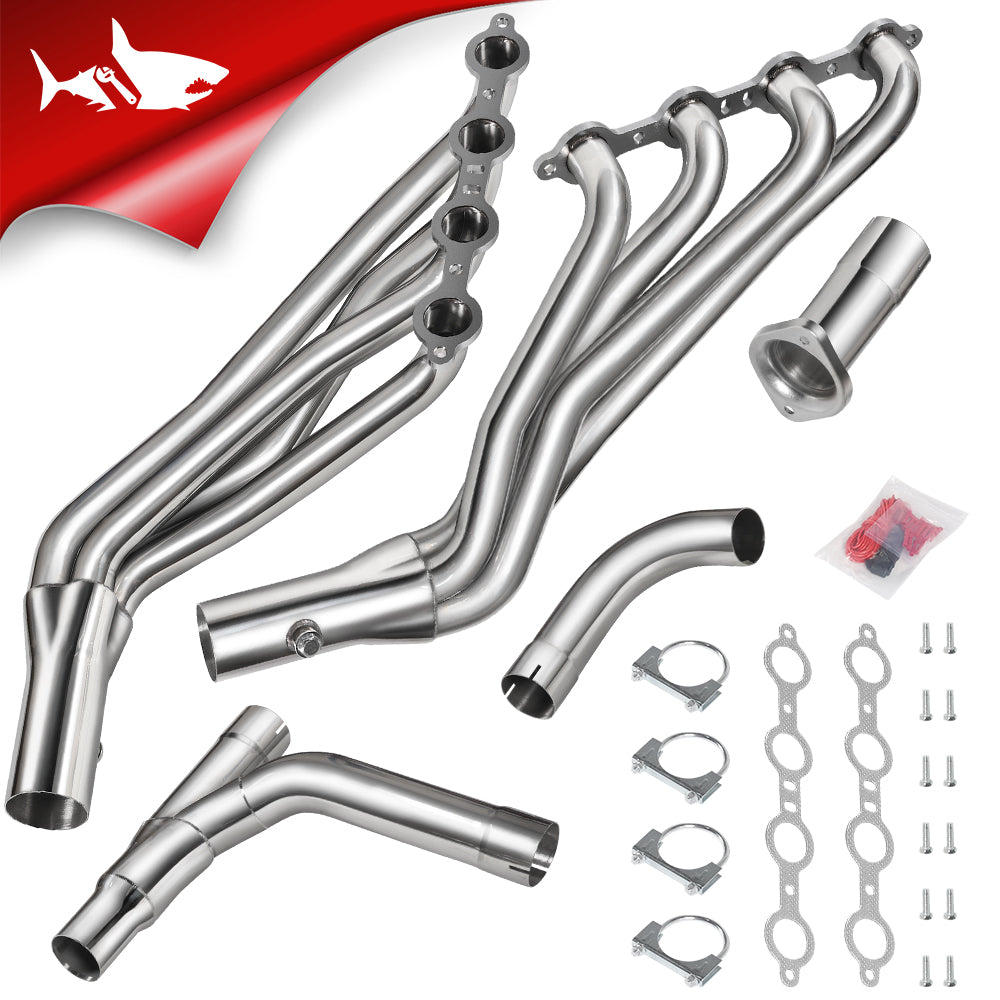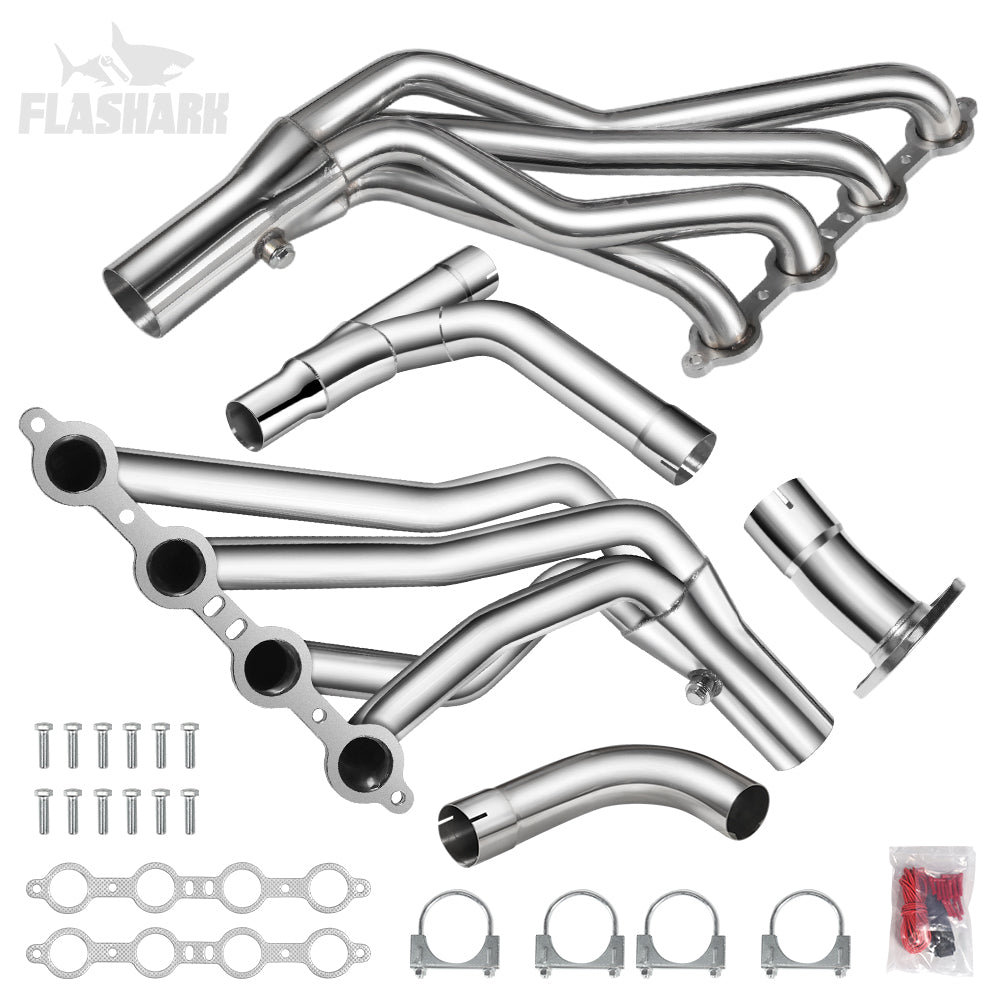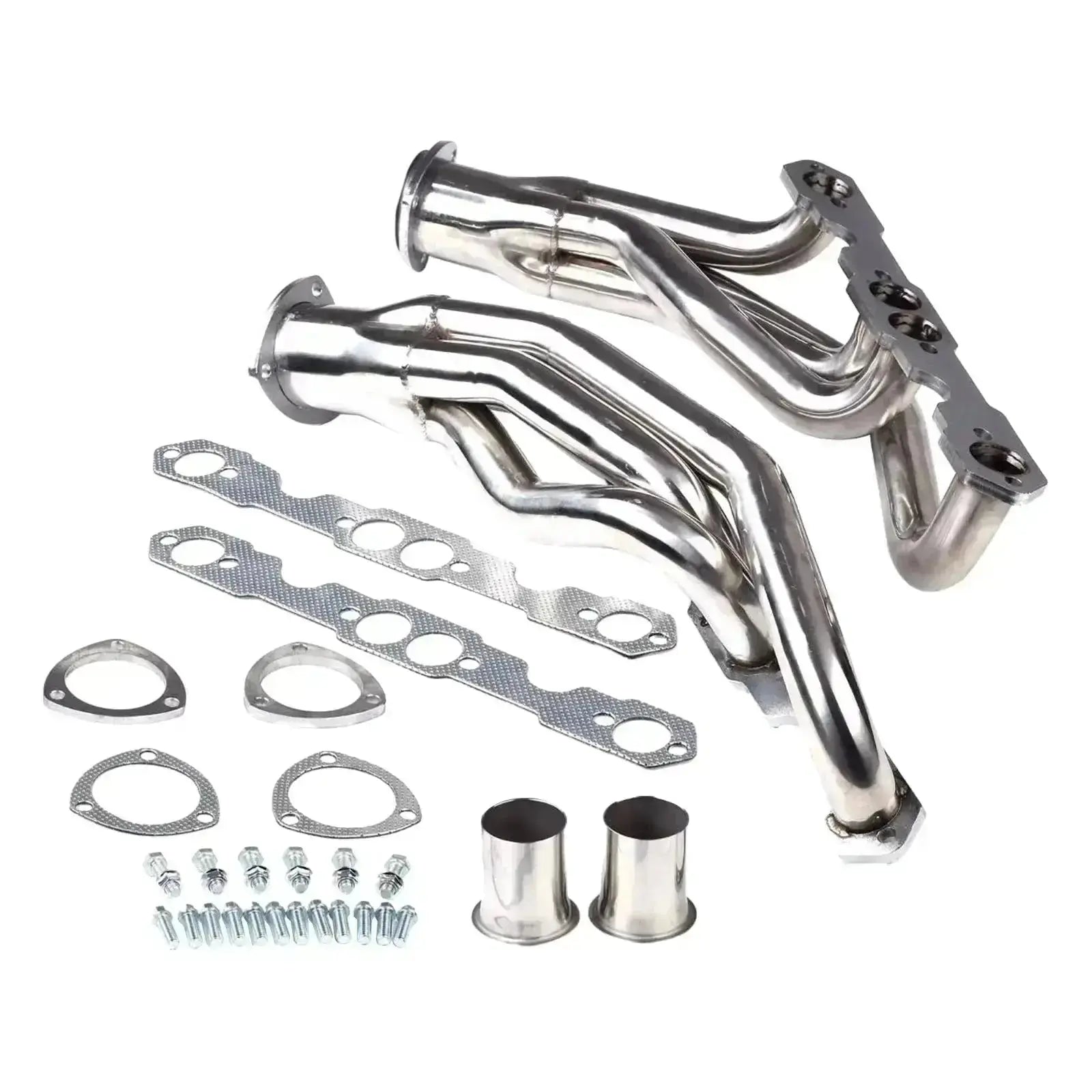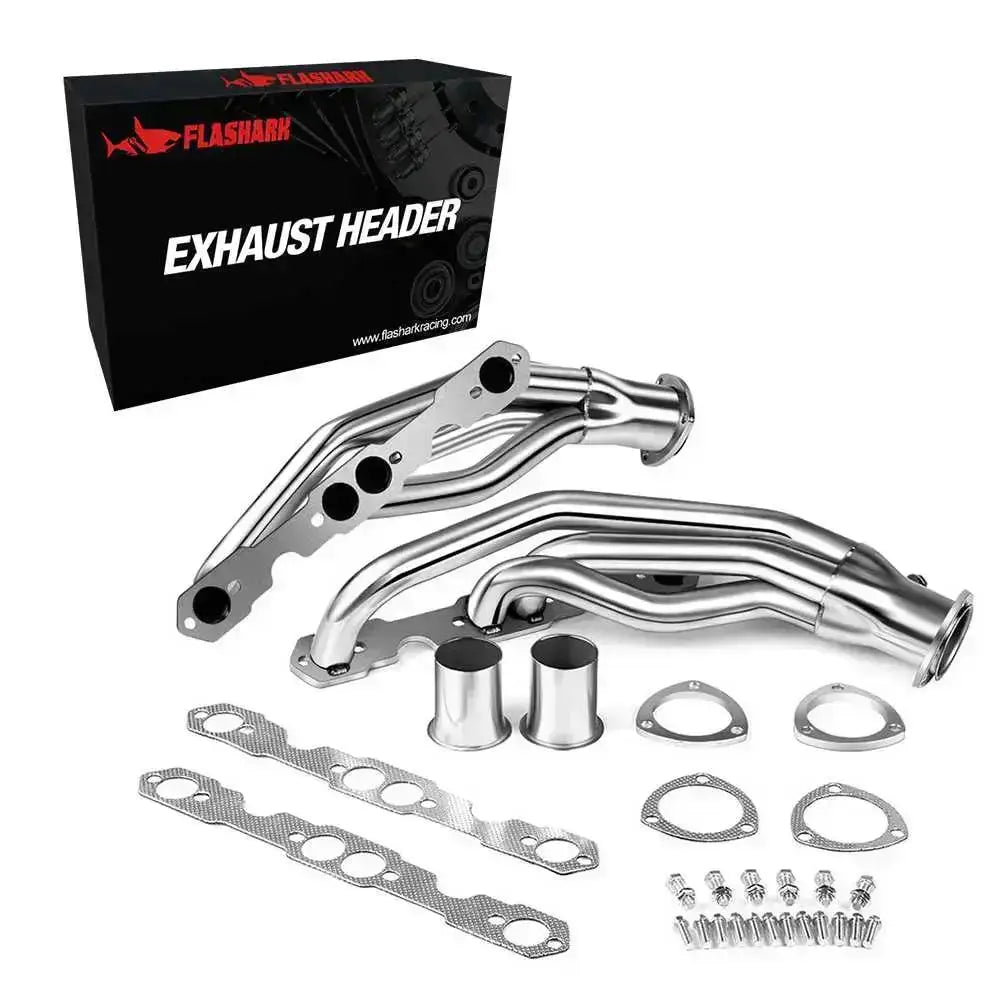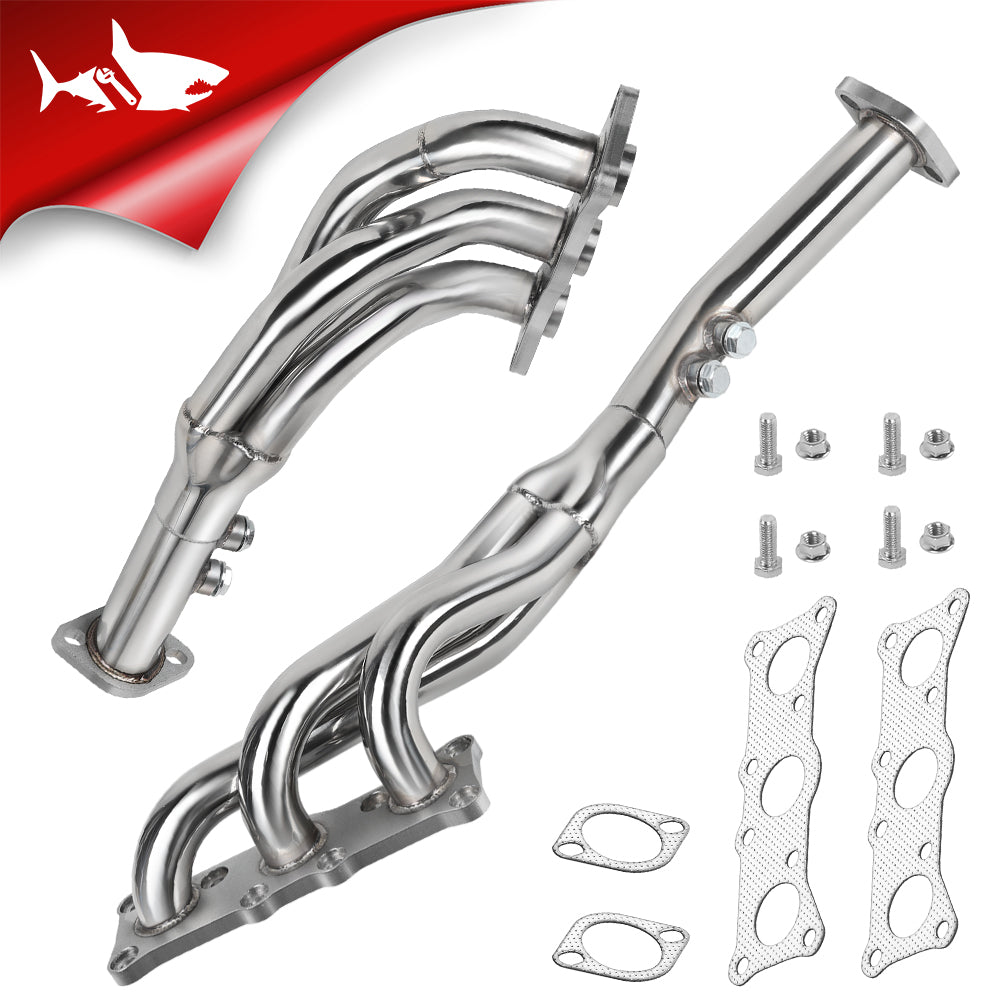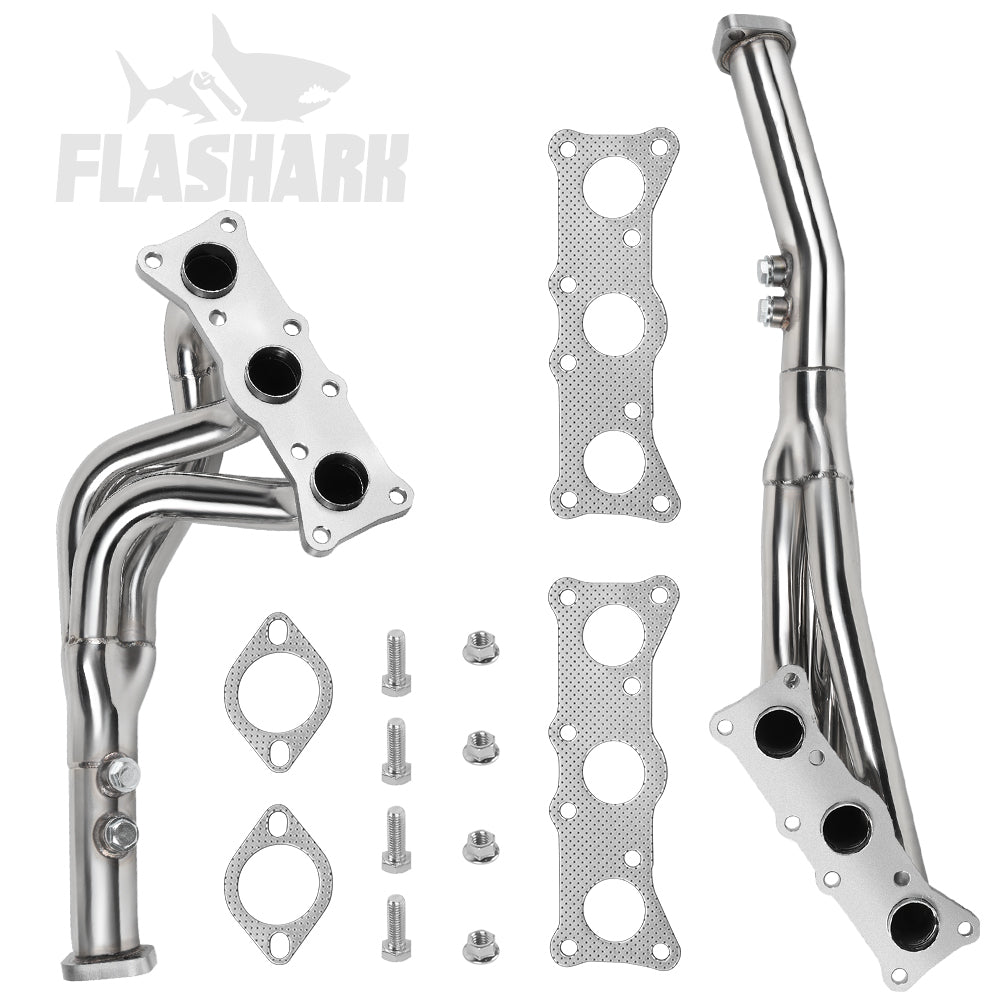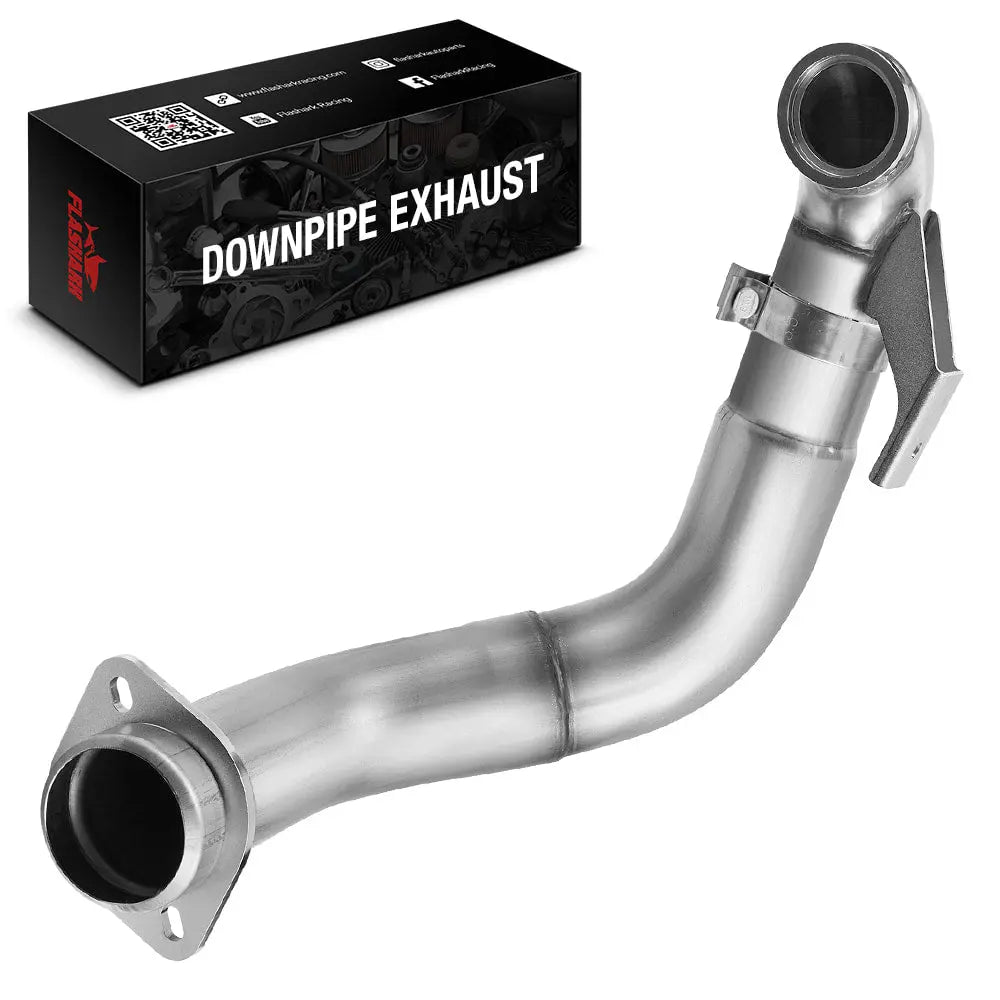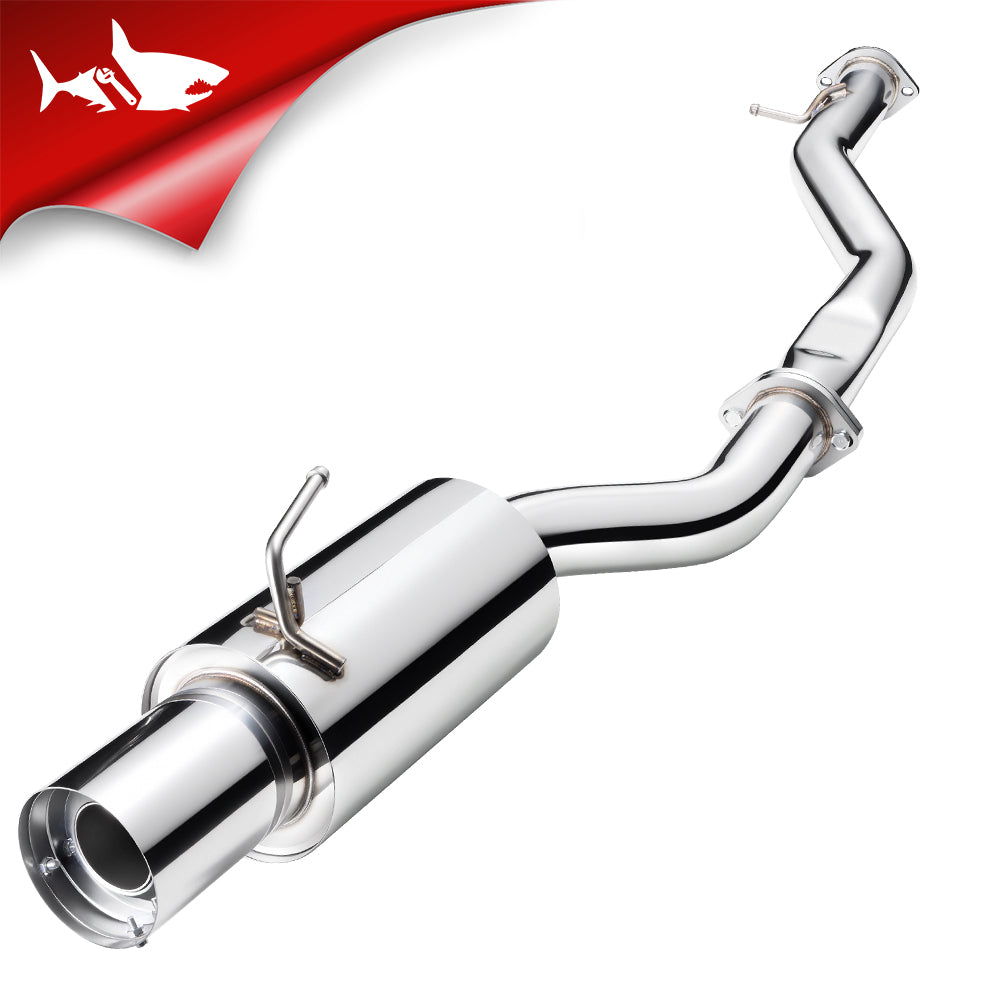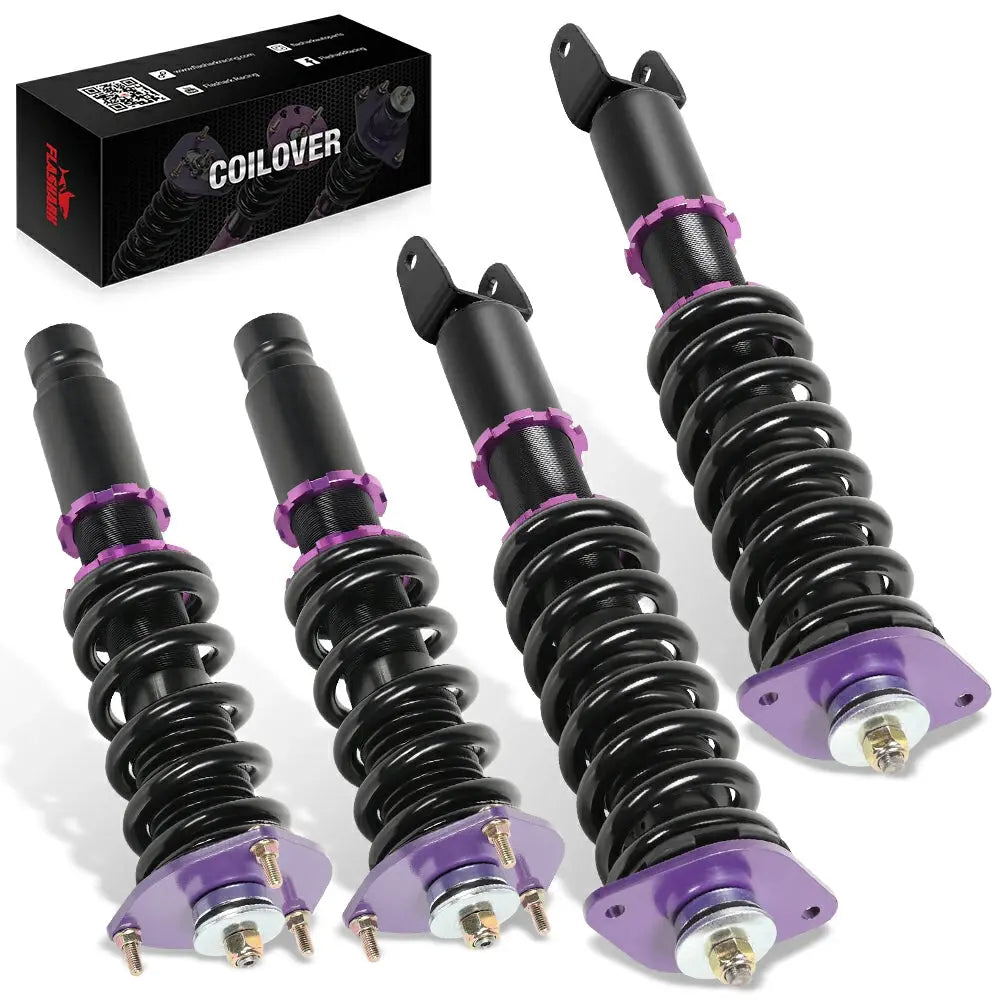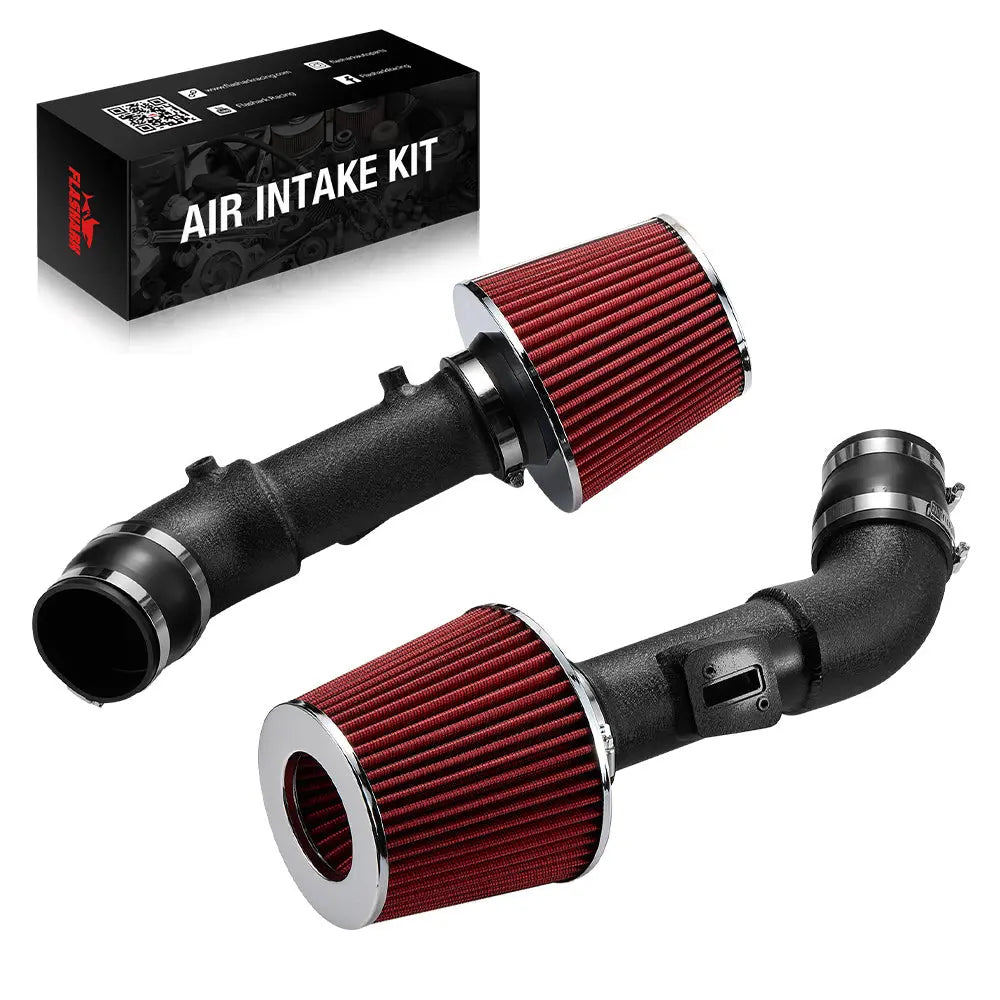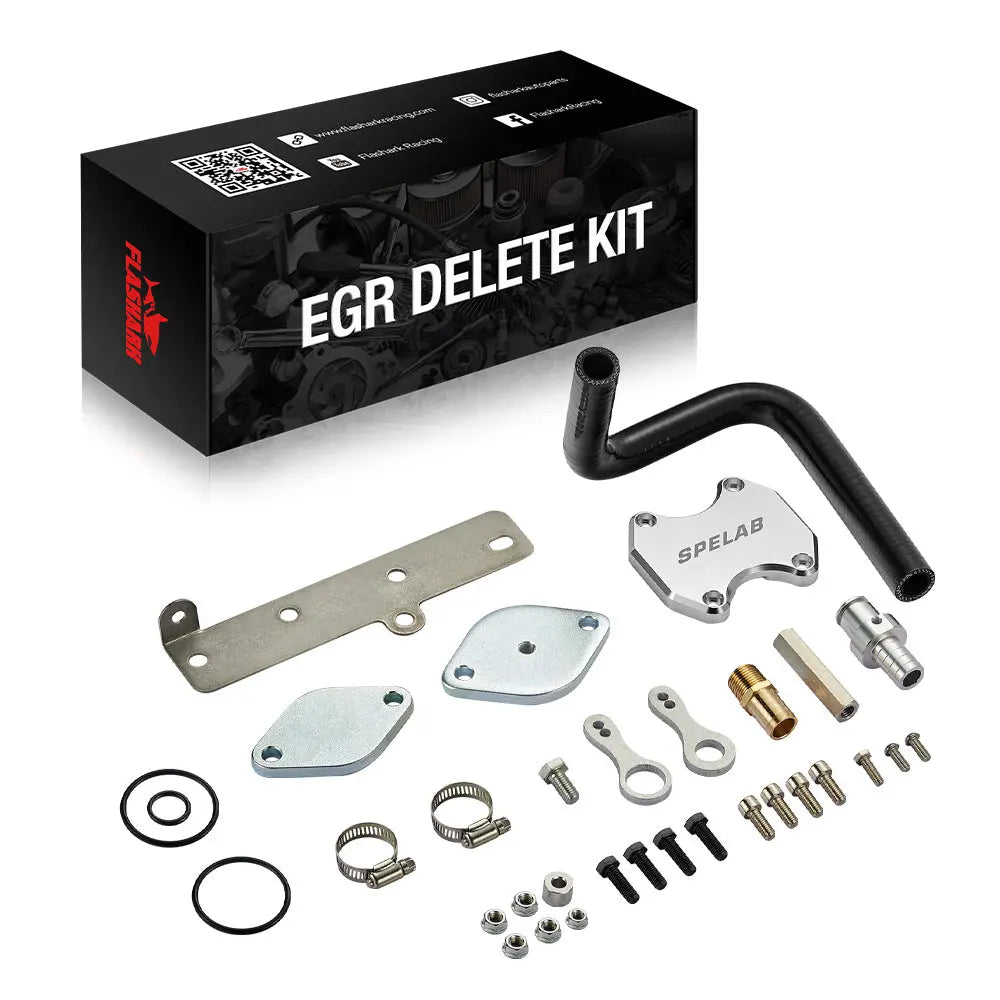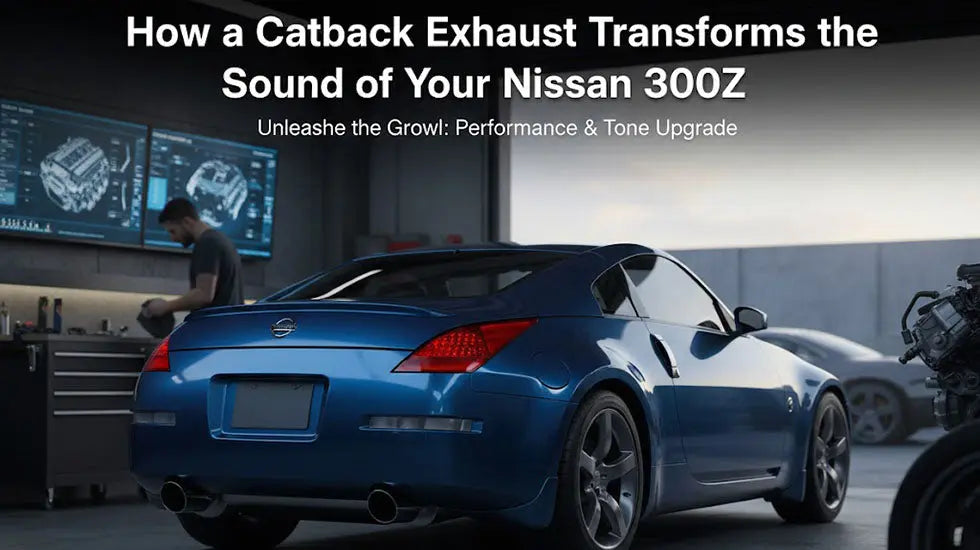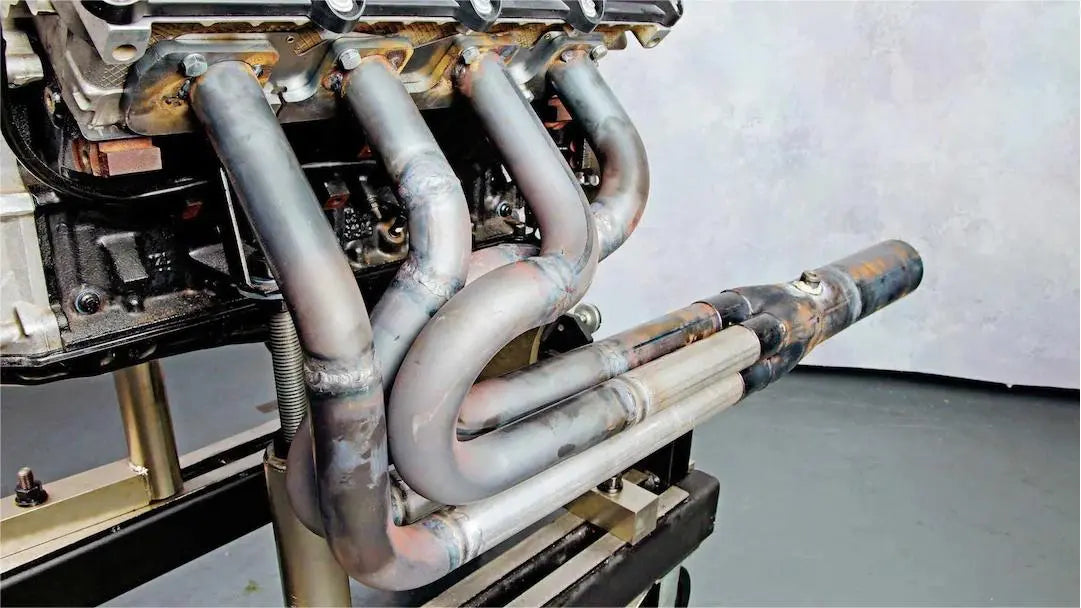Exhaust systems are a central topic in the world of performance tuning, and one of the most significant components in this realm is the exhaust header. The design of an exhaust header directly impacts engine performance, combustion efficiency, and exhaust emissions. In this article, we’ll dive into the advantages and disadvantages of exhaust headers, comparing them to regular exhaust manifolds and analyzing their impact on vehicle performance.
Advantages of Exhaust Headers:
Increase torque and horsepower output
The design of the exhaust headers can optimize the exhaust sequence and speed of exhaust gas, improve the cylinder charging efficiency, and then increase the torque and horsepower output of the engine. By better managing the flow of exhaust gas, the exhaust header can help the engine produce more power at high rpm and provide a wider torque curve, improving the overall driving experience.
Improve exhaust flow performance
The exhaust header is a component that connects the car engine and the exhaust system. Its main function is to efficiently discharge exhaust gas from the exhaust port of the engine. The traditional exhaust system uses a shared exhaust pipe design, while the exhaust header separates the exhaust gas from each cylinder, reducing airflow interference and blockage. This design can improve exhaust flow performance, reduce exhaust back pressure, and allow exhaust gas to escape more smoothly, thereby improving engine performance and responsiveness.
Provide personalized sound
By adjusting the length, diameter and layout of the exhaust pipe, the resonance frequency of the exhaust system can be changed, which produces different tones and volumes. This provides car enthusiasts with the opportunity to adjust the sound of the car, so that modified car enthusiasts can feel the pleasure brought by the sound more.

Shortcoming of Exhaust Headers:
Legal and environmental restrictions
Some regions have legal restrictions on exhaust systems, requiring cars to maintain original factory configuration or use certified exhaust systems. Installing an exhaust header may violate these regulations, making the vehicle not road legal. In addition, design optimization of the exhaust header may increase the emission of harmful substances such as nitrogen oxides and hydrocarbons, negatively affecting the environment. 2. Unconventional installation and adjustment: Since the exhaust header is a retrofit component, the installation and adjustment process may require additional expertise and skills. Improper installation or adjustment could result in reduced engine performance, increased noise, increased emissions, or other potential problems. The installation of such products requires professional personnel to install them.
Complex Installation and Adjustment
Since exhaust headers are a modification, they can be difficult to install. The installation process often requires specialized knowledge and tools. Improper installation or adjustments could lead to reduced engine performance, increased noise, higher emissions, or other complications. For this reason, professional installation is highly recommended to ensure proper setup and avoid potential issues.
Potential Impact on Other Vehicle Systems
The installation of exhaust headers may also require modifications to other vehicle systems. For example, adjustments to the fuel injection system, engine controls, or other related components may be necessary due to changes in exhaust flow characteristics. Additionally, headers can increase the temperature in the engine bay, which might cause thermal stress on nearby components, leading to possible long-term damage if not carefully managed.

Header vs. Traditional Exhaust Manifold: Performance Comparison
Exhaust headers are often compared to standard exhaust manifolds. So, do headers really offer a significant performance boost over traditional exhaust systems?
Performance Improvement
Compared to regular exhaust manifolds, headers can significantly reduce exhaust backpressure, which improves engine airflow efficiency. For high-performance engines or modified vehicles, headers provide substantial gains in horsepower. Many drivers note that headers offer smoother power delivery, especially at high RPMs, and enhance acceleration. Headers can make a noticeable difference, particularly for vehicles with higher power demands or those used in racing applications.
Sound
Headers have a reputation for producing a much more aggressive exhaust note. The design allows exhaust gases to exit more efficiently, which leads to a louder and more robust sound. For performance car owners who enjoy the aggressive sound of their exhaust system, headers are often a welcome modification. However, for daily drivers or those sensitive to noise, this can be a downside, as it may lead to a louder driving experience.
Efficiency
The primary benefit of headers is their ability to reduce backpressure, allowing the engine to expel exhaust gases more efficiently. This results in better fuel efficiency and engine performance, particularly under high load. For drivers seeking enhanced engine efficiency and performance, headers are an excellent option as they help the engine perform better in demanding conditions, like towing or racing.
Who Should Consider Exhaust Headers?
- High-Performance Enthusiasts: If you're looking to boost engine performance, especially for racing or performance modifications, headers provide significant improvements in torque, horsepower, and acceleration.
- Daily Drivers: If your priority is a quiet and smooth driving experience, headers may not be the best choice due to the added noise and potential legal issues with emissions.
- DIY Modifiers: If you have experience with automotive modifications, installing headers can be a rewarding project. However, it requires technical skill, and you’ll need to factor in the time, cost, and expertise required for proper installation.
Conclusion
Exhaust headers can provide substantial benefits, including increased engine performance, enhanced exhaust flow, and a more aggressive sound. However, they come with potential downsides, such as complicated installation, higher costs, and the risk of legal or environmental concerns. Before deciding to install headers, carefully consider your vehicle's purpose, your performance goals, and local regulations.
For performance car owners and enthusiasts, headers are an excellent way to unlock more power and responsiveness from your engine. For everyday drivers, however, it’s essential to weigh the trade-offs of added noise, potential emissions issues, and installation complexity. Always research thoroughly and, if necessary, consult a professional to ensure your modifications are safe, effective, and compliant with legal standards.

